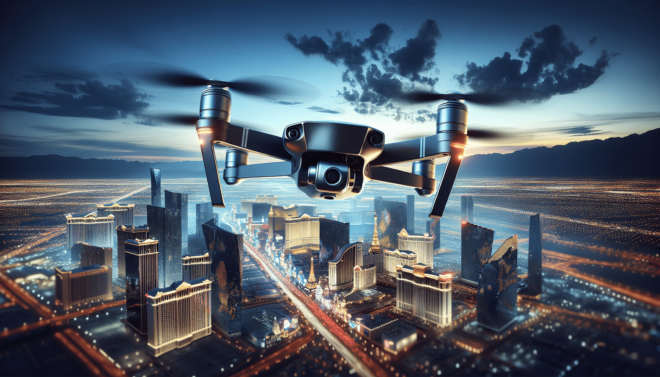Have you ever considered flying a drone in Las Vegas? It’s an exciting idea, soaring over the vibrant lights and unique landscapes. But did you know that before you take to the skies, it’s crucial to be aware of the local laws governing drone use in the city? Understanding the legal framework can save you from potential headaches, fines, or legal issues. Let’s embark on a journey to discover why it’s important to check these laws and how they affect your flight experience.
Understanding Drone Regulations
Flying drones can be a thrilling activity, offering unique perspectives and the chance to capture breathtaking aerial footage. However, like any activity that involves technology and public spaces, there are rules to follow.
What Are Drone Laws?
Drone laws are sets of regulations that govern the use of unmanned aerial vehicles (UAVs). These laws ensure that drone operations are safe and respect privacy and airspace regulations. While federal laws provide a broad framework, local jurisdictions may have their own specific rules. In Las Vegas, these laws are particularly significant due to the city’s bustling environment and proximity to sensitive areas.
Why Do Drone Laws Exist?
Drone laws are in place to prevent accidents, protect privacy, and safeguard restricted areas. Las Vegas, with its dense population and major tourist attractions, presents unique challenges and risks. Imagine a drone flying unregulated over a crowded concert or near a busy highway—without laws, the potential for accidents or disruptions is significant.
The Specifics of Las Vegas Drone Regulations
Understanding Las Vegas-specific rules is paramount for any drone operator planning a flight in this iconic city. The local government has prioritized safety and privacy through a set of guidelines that complement federal regulations.
Federal vs. Local Regulations
While the Federal Aviation Administration (FAA) provides overarching rules for drone use in the United States, Las Vegas enforces additional local regulations. This dual-layer of regulation ensures both national standards are met and local considerations are addressed.
- FAA Regulations: Include registering your drone, following controlled airspace rules, and adhering to safety guidelines.
- Local Las Vegas Regulations: May include restrictions on flying over certain areas, such as schools, government buildings, or events, and adhering to specific operational hours.
Restricted Areas in Las Vegas
In Las Vegas, certain areas are no-fly zones. These include the famous Strip, airports, and certain government facilities. Understanding these zones is critical to ensure compliance.
| Restricted Area | Reason for Restriction |
|---|---|
| Las Vegas Strip | High population density and electronic interference risk |
| McCarran International Airport | Air traffic safety concerns |
| Nellis Air Force Base | National security and safety reasons |
Ensuring Safe Drone Operations
Safety is a primary concern for both drone operators and the general public. Knowing the rules isn’t just about being compliant; it’s about ensuring that flights are safe for everyone involved.
Pre-Flight Preparations
Before you even think about launching your drone, several preparatory steps should be completed. This ensures your flight will not only be legal but also safe.
- Check Your Equipment: Ensure that your drone is in good working condition.
- Weather Conditions: Poor weather can affect your drone’s operation and legality of flight.
- Flight Plan: Plan your flight path to avoid restricted zones and potential hazards.
Operating Within Airspace
Understanding the airspace you are flying in is critical. The proximity to airports and military bases makes it essential to follow guidelines.
- Geofencing: Some drones come with geofencing capabilities, preventing them from entering restricted airspace.
- Understanding Class B Airspace: Las Vegas is dominated by Class B airspace, which has strict regulations on altitude and operation.
Consequences of Non-Compliance
While flying drones can offer exciting opportunities, non-compliance with regulations can lead to stern penalties.
Legal Ramifications
Failure to follow the law can lead to fines or more severe legal consequences. Ignoring these laws is not only risky but can also result in substantial financial loss.
- Fines: Ranging from hundreds to thousands of dollars depending on the infraction.
- Criminal Charges: In severe cases, especially if public safety is compromised.
Impact on Personal Liability
Beyond legal consequences, there are personal liabilities to consider. Damaging property or causing injury with your drone can lead to personal lawsuits.
How to Stay Informed
Staying informed about drone laws requires diligence and proactive effort. This ensures that you are always prepared for safe and legal operations.
Resources for Information
Various resources can keep you up-to-date with the latest in drone laws.
- Federal Aviation Administration (FAA): Primary source for national drone regulations.
- Local Las Vegas Government: Provides updates on specific local laws and restrictions.
- Drone Operator Communities: Joining forums or online communities can provide insights and updates from experienced operators.
Continuous Education
As drone technology and regulations evolve, continuous education is important for every drone operator.
- Online Courses: Many available courses cover both practical piloting skills and legal regulations.
- Workshops and Seminars: Engage with other drone enthusiasts and professionals to gain firsthand insights.
Conclusion
As you consider flying your drone over the dazzling cityscape of Las Vegas, remember that understanding and complying with local laws is not just a matter of legality—it’s a matter of safety and responsibility. Knowing the rules not only protects you from legal trouble but also ensures that the skies remain a safe and enjoyable space for everyone. Happy flying!

